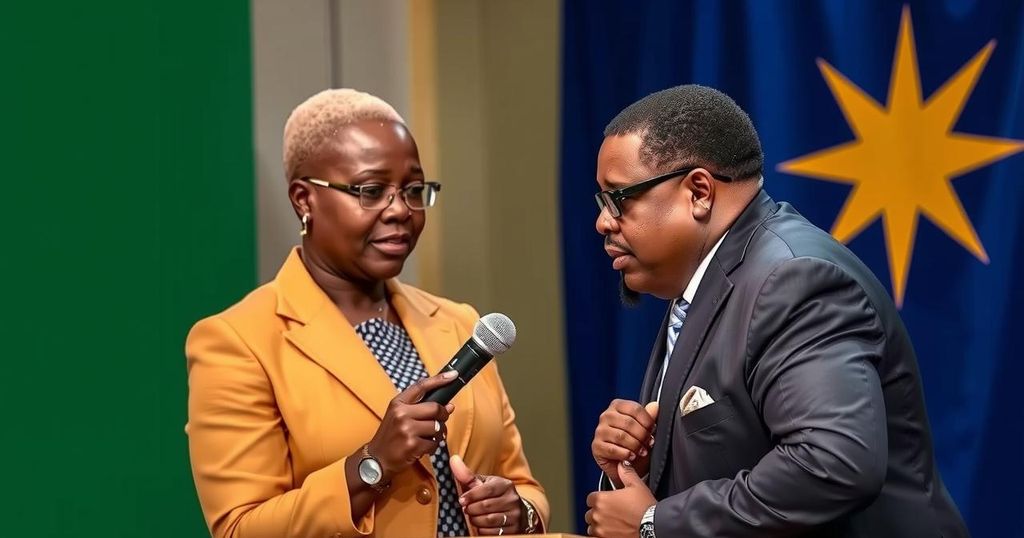Namibia’s Opposition Rejects Election Results Amid Allegations of Malpractices
Panduleni Itula, the IPC presidential candidate, rejects the results of Namibia’s general election citing significant malpractices, while the ruling Swapo party’s candidate, Netumbo Nandi-Ndaitwah, leads in the vote count. Irregularities occurred due to logistical issues during voting, prompting calls for justice through legal channels by the opposition. The situation emphasizes a potential shift in Namibia’s political landscape as the IPC mobilizes against Swapo’s long-standing dominance.
In the aftermath of Namibia’s recent general election, the opposition party Independent Patriots for Change (IPC), led by presidential candidate Panduleni Itula, has announced its refusal to accept the election results. Itula claimed significant electoral malpractices occurred during the voting process, which was extended to several days due to logistical issues, including a shortage of ballot papers and technical failures. His opponent, Netumbo Nandi-Ndaitwah of the ruling South West Africa People’s Organisation (Swapo), is vying to make history as the first female president of Namibia.
Voting commenced earlier but extended until Saturday, heavily impacting the proceedings as Namibia has a vast geography and around half of its three million residents are registered to vote. Despite the ongoing vote counting, which has thus far shown Nandi-Ndaitwah with 48% and Itula with 30%, Itula declared, “We shall not, under any circumstances, recognise the outcome of the 2024 election… that is still, in our opinion, illegitimately continuing,” urging for peace. The IPC plans to seek judicial recourse and encourages individuals who faced voting impediments to report matters to law enforcement. This election occurs during a challenging time for Swapo, which has lost some popularity in recent years, witnessing its vote share decline below 60% in the previous election for the first time since taking power in 1990.
Namibia has a history of political dominance by the South West Africa People’s Organisation (Swapo), which has governed since the country’s independence from South Africa in 1990. In recent years, however, public sentiment towards Swapo has diminished, and they encountered significant electoral challenges. The present political landscape suggests a shift may be occurring within Namibian politics, echoing trends seen in neighboring countries where established liberation movements, like South Africa’s African National Congress, have also faced their own electoral declines.
The refusal of the IPC to accept Namibia’s recent election outcomes highlights ongoing tensions within the nation’s political framework, amidst allegations of electoral malpractices. With significant logistical issues reported and a historic challenge to Swapo’s longstanding governance, the political landscape in Namibia may be witnessing an evolving dynamic. The IPC’s intentions to pursue legal action and the close vote tallies reflect a critical juncture for democracy in Namibia, especially with the potential rise of female leadership.
Original Source: www.bbc.com




Post Comment